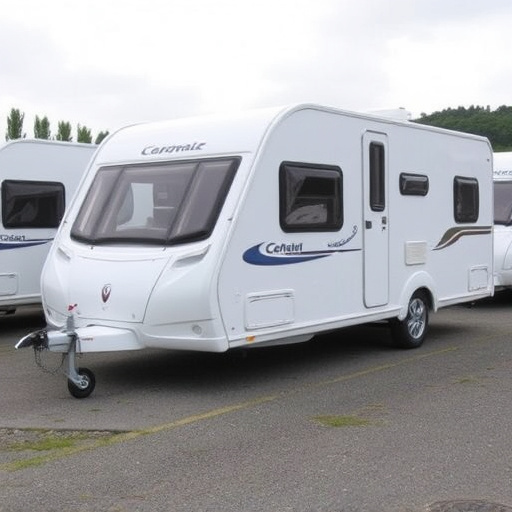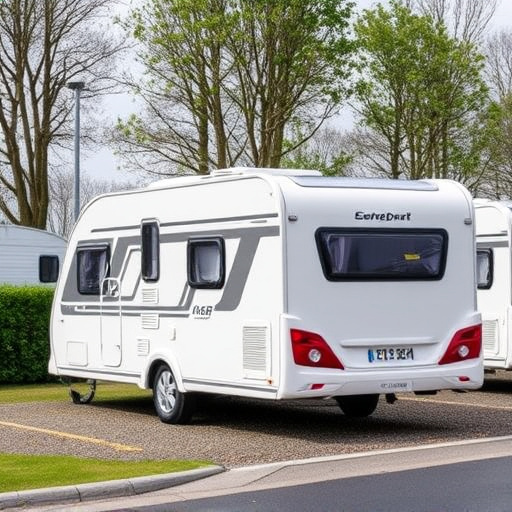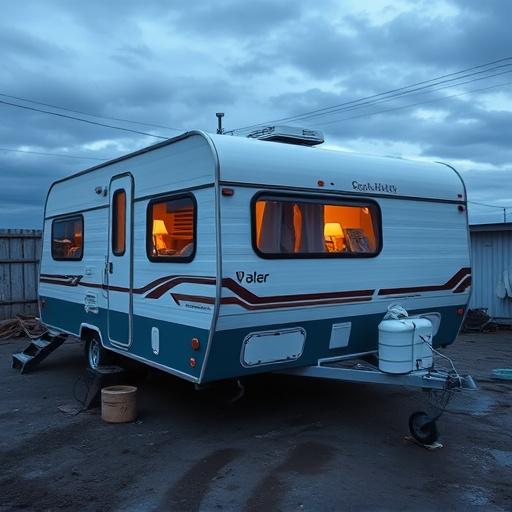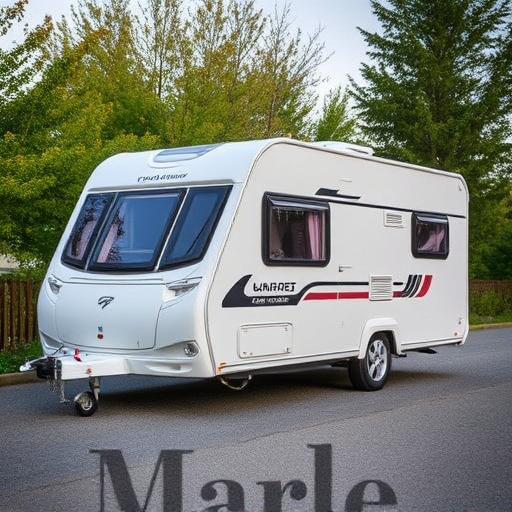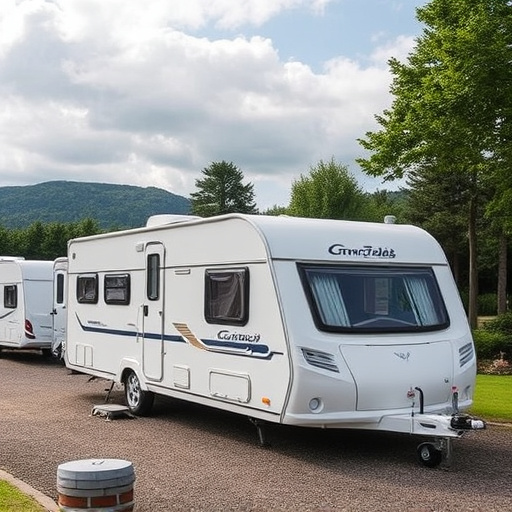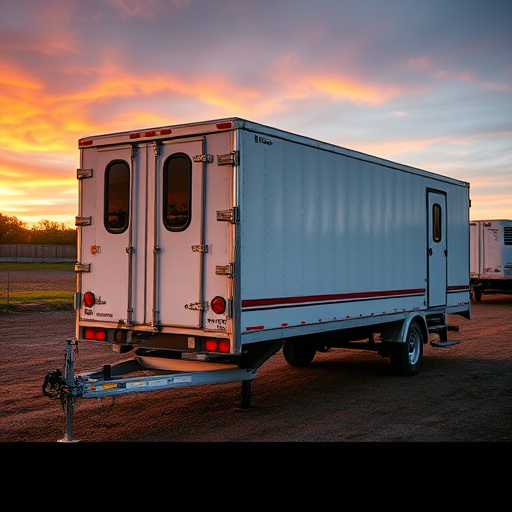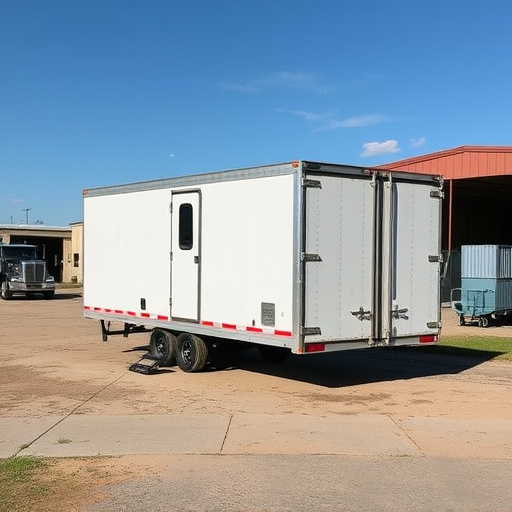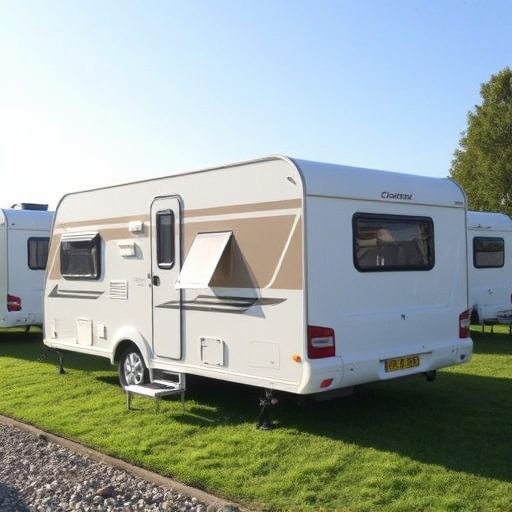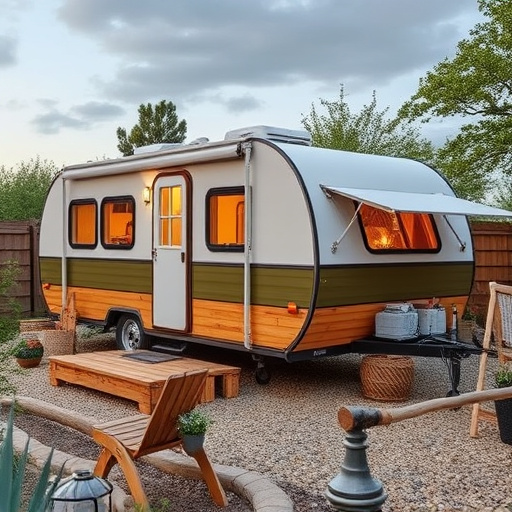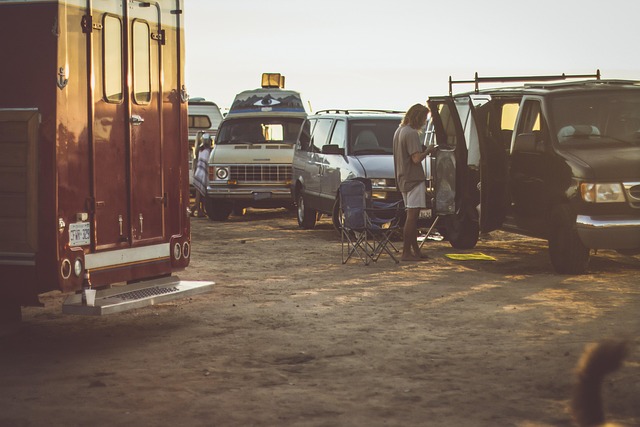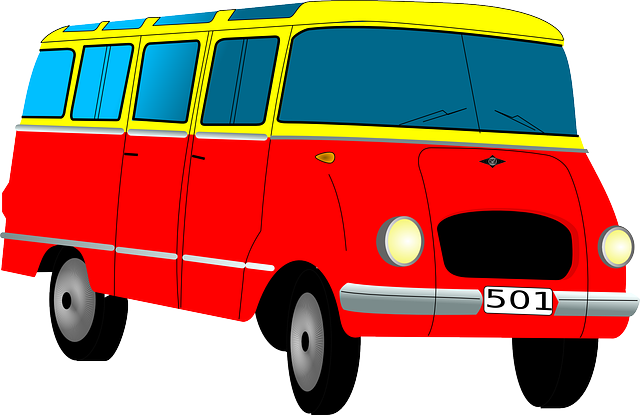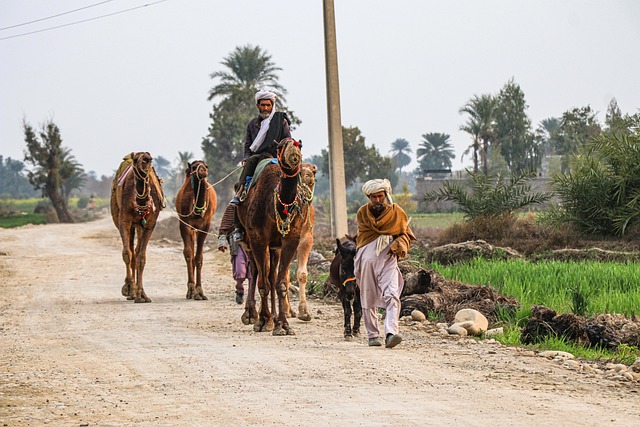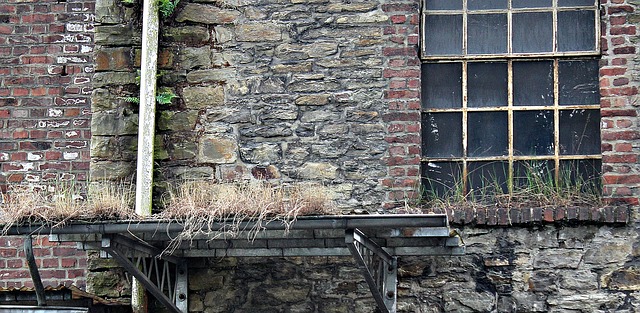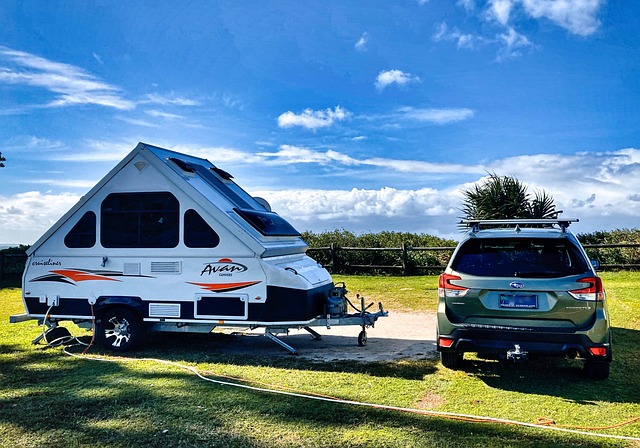Caravan Manufacturers: A Comprehensive Overview
Introduction
The world of travel and recreation has seen a significant rise in popularity for caravan living, prompting a thriving industry centered around caravan manufacturers. These businesses play a pivotal role in designing, producing, and supplying the essential components that transform ordinary vehicles into mobile homes. This article aims to delve deep into the world of caravan manufacturers, exploring their impact on global travel, economic contributions, technological innovations, regulatory frameworks, and future prospects. By the end, readers will gain an invaluable understanding of this dynamic industry and its role in shaping modern lifestyle choices.
Understanding Caravan Manufacturers: A Definition and Its Components
Caravan manufacturers are businesses specialized in crafting and assembling caravans, also known as recreational vehicles (RVs) or motorhomes. These companies cater to a diverse range of customers, from full-time travelers seeking off-grid living to families looking for memorable vacation experiences. A typical caravan consists of several key components:
- Chassis: The backbone of the caravan, usually constructed from lightweight materials like aluminum or steel, which provides structural integrity and connects the various sections.
- Bodywork: The exterior shell, often made from fiberglass, aluminum, or vinyl, designed to protect the interior while offering insulation and weather resistance.
- Interior Fitout: This includes furniture, appliances, sleeping quarters, cooking facilities, storage spaces, and bathroom amenities, creating a comfortable living environment.
- Mechanical Systems: Essential for mobility and comfort, these comprise engines, brakes, wheels, suspension systems, water tanks, sewage systems, and electrical components.
- Specialized Features: Modern caravans often incorporate advanced technologies like solar panels, satellite dishes, entertainment systems, and smart home integrations for enhanced convenience and connectivity.
Historically, caravan manufacturing has evolved from humble beginnings to a highly specialized industry. Early caravans were simple in design, with basic amenities, primarily catering to camping enthusiasts. Over time, technological advancements and changing consumer preferences have led to the sophisticated and luxurious RVs we see today.
Global Impact and Trends: A World of Travel
The influence of caravan manufacturers is a global phenomenon, with significant variations across regions. Here’s an overview of key trends:
| Region |
Market Dynamics |
Regional Focus |
Notable Manufacturers |
| North America |
Strong domestic market driven by recreational vehicle enthusiasts; high demand for luxurious models. |
Customization and technology integration are popular trends. |
Winnebago Industries, Forest River, Airstream |
| Europe |
Diverse market with strict environmental standards; popularity of compact and energy-efficient caravans. |
Sustainability and off-grid capabilities are key focuses. |
Hymer, Dethleff (Caravans), Adria Mobil |
| Asia Pacific |
Rapidly growing market driven by rising disposable incomes in China and India; affordable and family-oriented models prevalent. |
Accessibility and affordability remain priority for manufacturers. |
Jayco (Australia), Knaus (Germany with a strong Asian presence) |
| Middle East & Africa |
Affordability and weather-driven demand; popularity of larger caravans for desert camping. |
Value for money and rugged designs are preferred. |
Dethleff (Caravans), Hymer (Europe with a growing presence in MEA) |
These regional variations have led to diverse product offerings, catering to unique consumer preferences and environmental conditions. The global caravan manufacturing industry is characterized by intense competition, with manufacturers constantly innovating to stay ahead of changing trends and customer expectations.
Economic Considerations: Market Dynamics and Investment
The caravan manufacturing sector contributes significantly to the global economy, generating substantial revenue and employment opportunities. Here’s an analysis of key economic aspects:
-
Market Size: The global recreational vehicle (RV) market size was valued at USD 123.8 billion in 2021 and is projected to grow at a CAGR of 7.5% from 2022 to 2030, according to a report by Grand View Research. This growth is attributed to increasing disposable incomes, rising outdoor recreation spending, and expanding consumer preferences for travel experiences.
-
Investment Patterns: Caravan manufacturers often attract investments from private equity firms, venture capitalists, and strategic investors looking for long-term growth opportunities. These investments are directed towards research and development, expansion of production facilities, and the introduction of new models to capture market share.
-
Economic Impact: The industry supports a network of suppliers, dealers, and maintenance services, contributing to local and regional economies. Moreover, it promotes tourism, with caravan owners often exploring diverse destinations, thereby boosting local businesses and infrastructure.
Technological Advancements: Revolutionizing the Caravan Experience
Technological innovations have revolutionized caravan manufacturers, offering enhanced comfort, safety, and connectivity. Some significant advancements include:
-
Solar Power Integration: Many modern caravans are equipped with solar panels, enabling off-grid power generation for lighting, appliances, and even heating/cooling systems, promoting sustainability and reducing reliance on external energy sources.
-
Smart Home Technologies: From voice-controlled home automation to integrated entertainment systems, these features enhance the living experience, allowing caravan owners to enjoy smart convenience similar to that of their homes.
-
Advanced Safety Features: Manufacturers are incorporating cutting-edge driver assistance systems (ADAS), collision avoidance technologies, and backup cameras to improve safety on the road, addressing a critical aspect of RV ownership.
-
Connected Caravans: With the rise of 5G connectivity, caravans can be equipped with high-speed internet access, enabling streaming services, remote work capabilities, and real-time communication, bridging the digital divide between travel and technology.
Policy and Regulation: Navigating Legal Landscapes
Caravan manufacturers operate within a framework of regulations designed to ensure safety, environmental sustainability, and consumer protection. These policies vary by region but generally cover:
-
Safety Standards: Regulations mandate minimum safety standards for construction, including structural integrity, fire safety, electrical systems, and mechanical components.
-
Environmental Compliance: Manufacturers must adhere to emission standards for engines, as well as waste management and recycling guidelines for materials used in construction.
-
Product Liability: Legal frameworks protect consumers by holding manufacturers liable for product defects, ensuring that caravans meet advertised specifications and are safe for intended use.
-
Import/Export Controls: International trade policies govern the import and export of caravans, including customs duties, tariffs, and documentation requirements.
Challenges and Criticisms: Overcoming Obstacles
Despite its growth, the caravan manufacturing industry faces several challenges and criticisms that require strategic solutions:
-
Environmental Concerns: The industry’s carbon footprint and waste management are points of contention. Manufacturers must address these issues by adopting sustainable practices, using eco-friendly materials, and promoting energy-efficient models.
-
Quality Control: Ensuring consistent quality across production runs is a challenge, especially with complex customization options. Implementing robust quality management systems and standardized protocols can help maintain high standards.
-
Competition and Market Saturation: Intense competition has led to market saturation in some regions, making it difficult for manufacturers to differentiate their products. Innovation, niche marketing, and focus on unique features can mitigate this issue.
-
Regulatory Compliance: Keeping up with evolving regulations across multiple jurisdictions is a significant administrative burden. Utilizing specialized legal support and staying informed about policy changes can help manufacturers navigate these complexities.
Case Studies: Successful Applications and Lessons Learned
Case Study 1: Winnebago Industries – Leading the North American Market
Winnebago Industries, headquartered in Minnesota, USA, is a prominent player in the North American caravan manufacturing sector. Their success lies in several key strategies:
-
Customization Options: Winnebago offers extensive customization, allowing customers to design their dream caravan down to the smallest detail. This approach has fostered strong customer loyalty and word-of-mouth marketing.
-
Technology Integration: The company invests heavily in technological advancements, making its caravans industry leaders in smart home features, connectivity, and driver assistance systems.
-
Retail Experience: Winnebago has established a robust retail network, providing customers with a comprehensive buying experience. This includes on-site test drives and personalized consultations, fostering a sense of community among owners.
Case Study 2: Hymer – Sustainable Luxury in Europe
Hymer, based in Germany, is renowned for its high-end caravans across Europe. Their success can be attributed to:
-
Sustainable Practices: Hymer prioritizes sustainability by using eco-friendly materials, energy-efficient systems, and recycling initiatives. This approach appeals to environmentally conscious consumers.
-
Quality and Innovation: The company’s focus on precision engineering and innovative design has set a new benchmark for caravan quality in Europe.
-
Global Reach: Hymer has successfully expanded its presence beyond Europe, establishing a strong market position in the Middle East and Africa, demonstrating its ability to adapt to diverse cultural preferences.
Future Prospects: Emerging Trends and Strategic Considerations
The caravan manufacturing industry is poised for significant growth, driven by several emerging trends:
-
Sustainable Caravans: As environmental concerns persist, there will be an increasing demand for eco-friendly caravans, prompting manufacturers to invest in sustainable practices and technologies.
-
Smart Home Integration: The integration of smart home systems will continue to be a key focus, with advanced connectivity features becoming standard offerings.
-
Off-Grid Living: With the rise of remote work and digital nomads, there will be a surge in demand for off-grid capable caravans, emphasizing energy independence and self-sufficiency.
-
Niche Markets: Manufacturers should explore niche markets, such as specialized caravans for outdoor enthusiasts, families, or specific age groups, to cater to diverse needs.
Conclusion: A Journey Towards the Future of Caravan Living
Caravan manufacturers play a pivotal role in shaping modern travel and recreation, offering mobile homes that blend comfort, technology, and freedom. From their historical beginnings to today’s technologically advanced models, these businesses have adapted to global trends and customer preferences. As the industry looks towards the future, sustainable practices, smart home integrations, and off-grid capabilities will be key drivers of growth.
By addressing challenges related to environmental impact, quality control, and regulatory compliance, caravan manufacturers can continue to thrive while meeting the evolving needs of a global community seeking unique travel experiences. This dynamic industry is set to redefine caravan living, making it more accessible, comfortable, and sustainable for all.
FAQ Section: Answering Common Queries
Q: What are some popular features in modern caravans?
A: Popular features include solar panels, satellite TV, smart home automation, powerful appliances, and advanced driver assistance systems for safety and convenience.
Q: How do I choose the right caravan manufacturer?
A: Consider factors like your budget, desired features, brand reputation, customer reviews, warranty coverage, and after-sales support. Researching and test driving different models will help you make an informed decision.
Q: Are caravans environmentally friendly?
A: While traditional caravans have a carbon footprint, modern manufacturers are adopting sustainable practices by using eco-friendly materials, energy-efficient systems, and promoting off-grid capabilities to reduce their environmental impact.
Q: Can I customize my caravan?
A: Absolutely! Many manufacturers offer extensive customization options, allowing you to design your caravan to suit your specific needs and preferences, from interior layouts to exterior features.
Q: How safe are caravans on the road?
A: Modern caravans come equipped with advanced safety features, including collision avoidance systems, backup cameras, and stability controls, making them safer than ever before. However, responsible driving practices and adhering to vehicle maintenance schedules are essential for safety.
Caravan manufacturers like Vacationer Caravans have played a pivotal role in transforming simple camping gear into sophisticated mobile homes. Through decades of experience and innovation, they merge traditional craftsmanship with modern technol…….
Vacationer Caravans are meticulously crafted, high-quality mobile homes designed with travelers' comfort and needs in mind. Advanced manufacturing techniques using premium materials ensure durability, energy efficiency, and luxurious interi…….
In the competitive caravan manufacturing industry, top brands like Hymer, Adria, Forest River, and Winnebago lead with quality, innovation, and customer satisfaction. They produce luxurious Vacationer Caravans featuring advanced technology, spac…….
Vacationer Caravans are gaining popularity among families and outdoor enthusiasts for their blend of comfort and mobility, offering essential amenities like kitchens, bathrooms, and sleeping areas. Known for durability, safety, and innovative de…….
Vacationer Caravans are popular choices for modern travelers seeking adventure with home comforts. Built to handle diverse terrains, these durable vehicles offer reliable experiences for weekend getaways or extended trips. Their robust construct…….
Vacationer Caravans (also known as Recreational Vehicles or RVs) offer a versatile way to explore new places comfortably. Available in various sizes and styles, they cater to diverse needs, from compact travel trailers to spacious motorhomes, ea…….
Caravan manufacturers like Vacationer Caravans lead the industry with their commitment to superior craftsmanship, using high-quality materials and innovative techniques to create durable and aesthetically pleasing caravans. Their focus on detail…….
Caravan manufacturers are revolutionizing the industry through advanced manufacturing techniques like 3D printing, robotics, and CAD software, resulting in lighter, stronger, more energy-efficient, and aesthetically modern Vacationer Caravans. T…….
Caravan manufacturers aiming for success in Australia must overcome environmental and logistical challenges, such as extreme weather and remote areas, while leveraging the country's diverse attractions and outdoor culture. By designing robu…….
Vacationer Caravans, established over several decades, are renowned for quality and reliability, offering families memorable travel experiences through premium materials, innovative designs, and seamless fusion of adventure and comfort. Their ev…….
Vacationer Caravans are luxury recreational vehicles designed for elevated camping experiences, combining comfort, style, and functionality. Crafted with high-quality materials and precise manufacturing techniques, these caravans offer longevity…….
Caravan manufacturing is a blend of precision engineering, innovative design, and classic craftsmanship, as exemplified by top manufacturers like Vacationer Caravans. These leaders combine cutting-edge technology with traditional methods to prod…….
Vacationer Caravans, with their decades-long legacy of exceptional craftsmanship and innovative design, have established themselves as leaders in the travel industry. They offer durable, comfortable, and feature-rich vehicles tailored to modern…….
In recent years, caravan manufacturers like Vacationer Caravans have seen a surge in demand for high-performance, luxurious caravans that blend cutting-edge technology with home comforts. This trend reflects modern adventurers' desire to ex…….
Caravan manufacturers like Vacationer Caravans are renowned for combining durability, aesthetics, and quality. They invest heavily in premium materials, advanced technologies, and meticulous craftsmanship to deliver industry-leading finishes. Th…….
Vacationer Caravans are high-quality, durable travel homes designed for outdoor exploration and extended stays. Crafted with robust frames, weatherproof exteriors, and efficient interiors, they offer a comfortable and secure space for families a…….
Vacationer Caravans, produced by leading caravan manufacturers, are renowned for their robust, well-designed, and feature-rich recreational vehicles. With a focus on customer satisfaction, these manufacturers blend cutting-edge technology with t…….
Vacationer Caravans are gaining popularity as versatile, spacious, and affordable travel options, catering to families, couples, and solo adventurers. With a history dating back to the early 20th century, their evolution has been marked by innov…….
Caravan manufacturing has evolved significantly since its beginnings in the early 20th century, driven by increasing recreational travel demands. From simple trailers to sophisticated Vacationer Caravans, manufacturers have pioneered innovations…….
